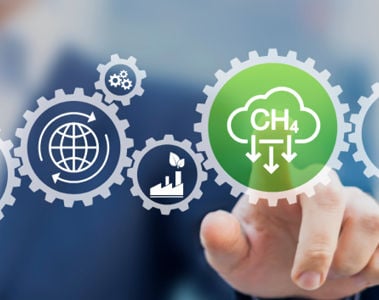David Dayhoff, dsm-firmenich North America Sustainability Director – Precision Services, was a plenary speaker at the annual Minnesota Nutrition Conference, organized by the University of Minnesota.
David’s remarks focused on a few key ideas: When, not if, measurement of environmental footprint data will be important for animal agriculture, the need to move beyond industry average data, and dsm-firmenich’s Sustell™ platform as an example of a way to do so.
David’s fellow panelists included speakers from IFEEDER and the Global Feed Lifecycle Analysis Institute (GFLI). dsm-firmenich is both a member of IFEEDER and its sustainability roadmap advisory committee, as well as a founding corporate member and ongoing board member of GFLI. Lara Moody from IFEEDER highlighted their recently released sustainability toolkit, to which dsm-firmenich and many other feed industry companies contributed.
David focused his remarks on environmental sustainability, with a particular emphasis on corporate climate change commitments as an important driver of increased sustainability interest in animal agriculture. There is no required standard for climate change reporting yet in the USA. However, around the world thousands of companies from different industries voluntarily follow The Greenhouse Gas Protocol’s method of accounting for GHG emissions in the format of Scopes 1, 2 and 3.
Scope 1 emissions are generated by a company’s own activities, such as burning fuels to power boilers or employee travel. Scope 2 emissions are from purchased energy, mostly electricity from fossil fuel sources. The rest of the emissions from the value chain are scope 3 that come with purchased goods and services into a company’s operations, as well as those downstream with the use of the company’s products and services. For example, a grocery store will generate scope 1 and 2 emissions from running its stores and offices, but all the products sold on its shelves will be part of its scope 3 emissions.
Many leading retailers and food service companies have made public commitments to reduce or reach Net Zero emissions in the future for scopes 1, 2 and 3. David presented information about how for a grocery store, less than 15% of their emissions are associated with transportation and energy use, while about 90% of their emissions are scope 3. Emissions at the farm-level are far and away the majority of the footprint of food. Furthermore, the meat and dairy cases generally account for over 50% of the total, with fresh processed foods that use lots of meat and dairy products (for instance, the cheese and meat toppings on a pizza) pushing that total even higher. Therefore, retailers and restaurants will be completely dependent on animal proteins reducing their GHG footprints in order to keep their commitments. Simply selling less meat or dairy are not attractive nor feasible alternatives for them.
Given those facts, David suggested it is when, not if, animal protein producers will need to start sharing more environmental footprint information with their customers. One approach is to use averages, which is often the best available information today. However, over time averages will not serve grocers, restaurants, food manufacturers or farmers well as the market seeks out the producers who are the leaders in reducing their protein footprints. For instance, on average beef is one of the highest GHG footprint foods, yet depending on land management, production methods, feed composition, efficiency differences and technological advances, there is a huge range between the highest and lowest footprint beef.
Sometimes animal producers wonder how to get started on this journey, and what is even possible in terms of measuring the environmental footprint of something that combines the emissions for feed ingredients production, feed manufacturing, manure management and raising the animals themselves. David gave an overview of dsm-firmenich's Sustell environmental footprinting platform, as one example of how the industry is making progress. Sustell uses both databases like GFLI, as well as primary data, in a life cycle analysis-based digital platform that can provide GHG and other footprint data for both feed and animals. Sustell allows not only for quantification of actual production cycles, but also for what-if modeling of different changes in feed formulations, manure management practices and animal performance outcomes.
To learn more about corporate climate change commitments or Sustell, contact david.dayhoff@dsm.com or your dsm-firmenich representative.


